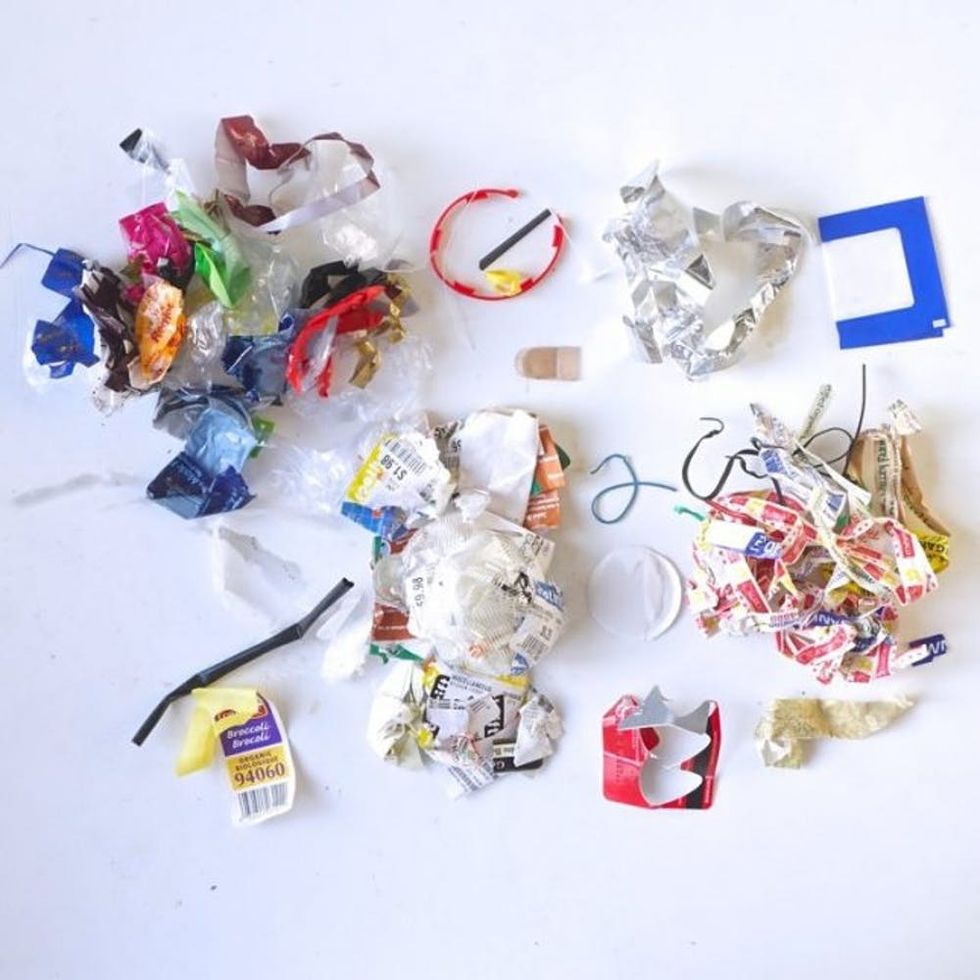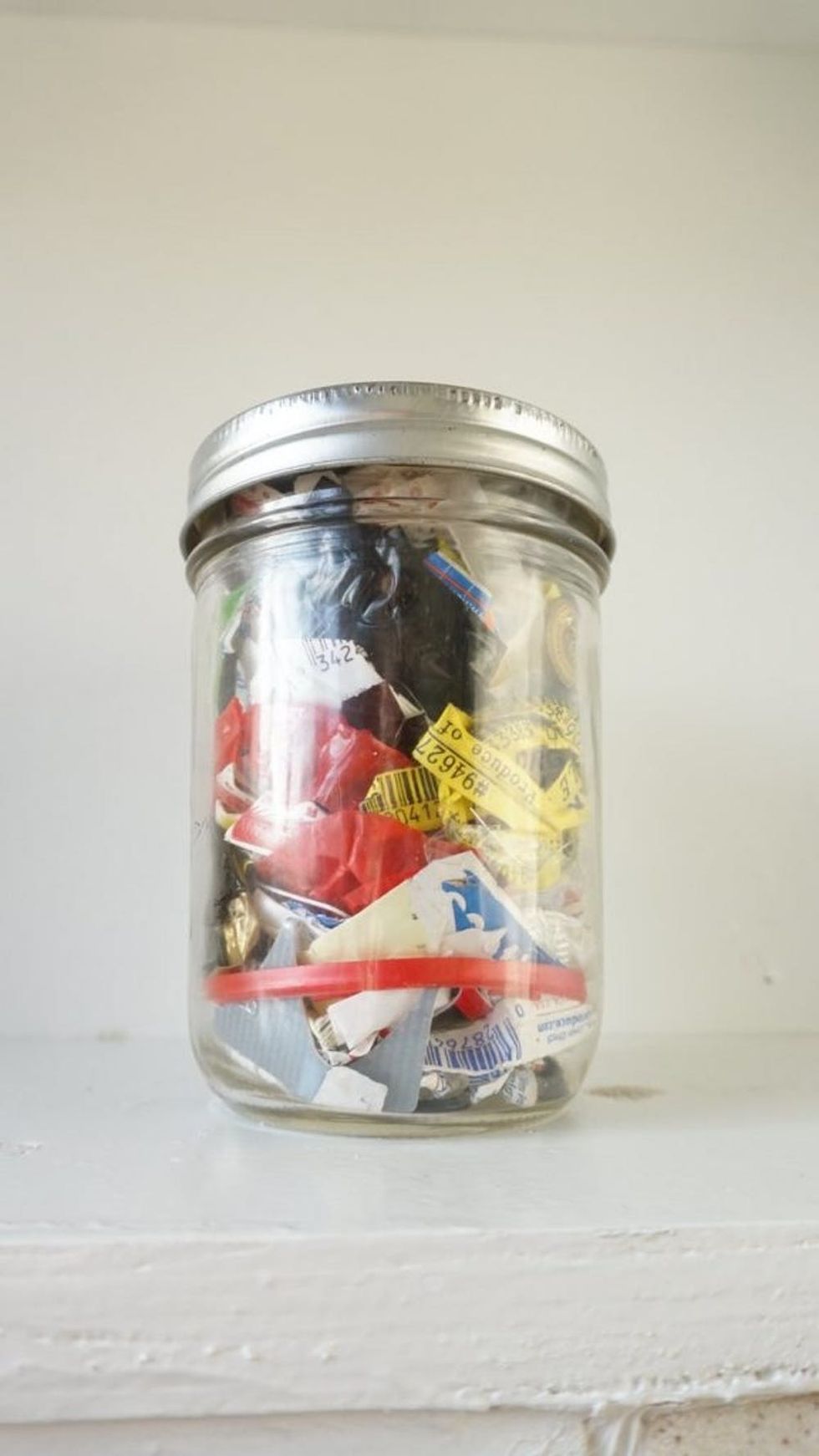The 27-year-old force behind Going Zero Waste wants to confront throwaway culture.
This Blogger Fits 2 Years’ Worth of Trash into a Jar — She Wants to Help You Go Zero-Waste, Too


Ladies First highlights women and girls who are making the world better for the rest of us.
It seems like you can’t log on to any social channels these days without seeing a plea to stop using plastics. Reusable cups, a call for the outright ban of straws, and increased recycling programs are becoming the norm. But though it might seem like a newer initiative, people have been steadily switching up their ecological footprint for years. Some are even going to the extreme and committing to waste-free lifestyles.
For actress Kathryn Kellogg, the blogger behind Going Zero Waste, the change in her habits happened while the now 27-year-old was still in college. After having pain in her breast and getting tested to see if a growth was cancerous, Kellogg says she started researching what in her environment could be problematic for her personal health. What she learned is that among the major things that can cause changes in our hormones, through our endocrine system, are plastics — specifically hormone-mimicking compounds known as endocrine disruptors, like BPA, that can hide inside many plastic products. Though her test results wound up being negative for cancer, she decided to make a change.
“I was phasing out plastic for health reasons,” Kellogg tells us from her home in California. She also began to replace cleaning and beauty products containing potentially endocrine-disrupting synthetic chemicals with all-natural ones.
Kellogg then moved from New York City to the west coast to follow her heart and acting dreams, getting engaged to her now-husband Justin in the process (they married in 2017). The move helped solidify her understanding that the changes she made for her personal health could also benefit the planet. Living close to the ocean and seeing the plastics washing up on shore sealed her fate. In 2015, Going Zero Waste was born.
Although Kellogg may not be as ‘zero’ waste as other hardcore waste-free advocates (she tells us she’s gotten some flack from other zero-wasters for driving a car), starting the website was, for her, a way to help show other people that changing our habits to better our personal health and the health of the planet are not only attainable goals, but that it’s easier than someone might think. Kellogg would know: All of the trash she’s generated over the last two years fits in a pint-sized mason jar.
That said, Kellogg doesn’t think being “zero waste” should mean not ever having to dispose of items — something Kellogg admits is impossible — but focusing instead on what it means to live in a throwaway society. Disrupting modern “throwaway culture” has not only been good for her health and the environment but, she says, has helped her reevaluate society’s demands on women.


“We’ve been tricked into thinking we need all of these [beauty products] when really, water will [often] suffice. We don’t need all these potions to look beautiful – we are beautiful and we can rely on our own confidence and our own beauty,” she explains. “But on the flipside, if you like those things, then that’s your prerogative too. So if that’s something that really interests you, my only suggestion is to be wary of the ingredients you are putting on your body.”
Ingredients aside, it’s how we use the products we purchase that can make a difference, too. Kellogg explains to us that most shampoo bottles are designed for us to use more product than is necessary, so even something as small as monitoring how much product we use, or cutting open that tube of toothpaste before sending it to the recycling bin, can help us better cut down on waste in our day-to-day lives.
“One of my favorite things to say is that very rarely do we have waste problems,” she says. “A lot of times we have creative thinking problems. Sometimes we’re just so used to doing things a certain way that we don’t even realize there’s a different solution staring us right in the face.”
Of course, Kellogg understands that for many of us, time and money can be major factors in how much we are able to change in our daily lives, especially when it comes to cutting down on waste. She’s not one to criticize how others manage their lifestyles but does see the value in slowing down when possible and reevaluating how much we actually need.
As for advice, Kellogg suggests starting small and finding what works for you. Although it would be great if everyone could buy the best quality, most environmentally-friendly products, budgets may not always give us the ability to throw down a few bills on life’s necessities. She suggests that outside of needing something immediately, we all wait 30 days before buying a new item of clothing or fun beauty product we saw at the mall.
“If you can wait 30 days before making your purchase, chances are you’re not going to buy it,” she explains, adding that secondhand shopping can be a wallet-friendly alternative to online impulse buys that’s better for the environment, too.
“I want people to make changes for them that make sense for them and their lifestyle,” she says. Whether that means shopping secondhand before buying new or committing to using every drop of body lotion before rushing out for another one, every small change can make a big difference long term, and that’s something all of us should strive to do — not just for the planet, but for us, too.
(Photos via Kathryn Kellogg)










